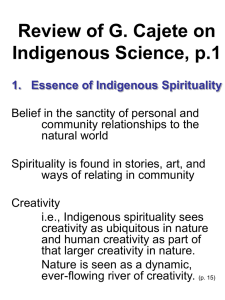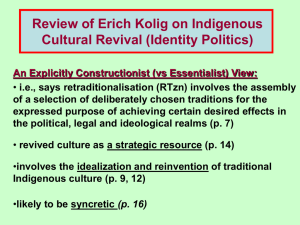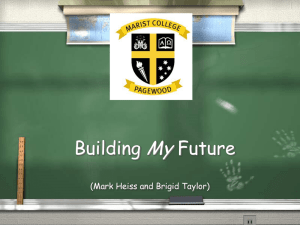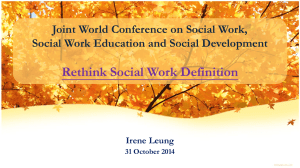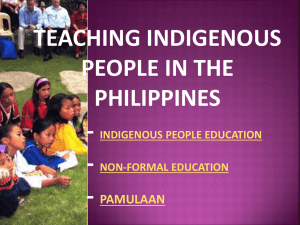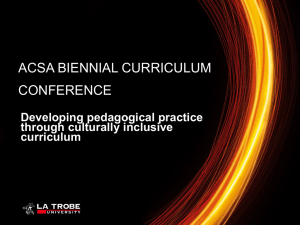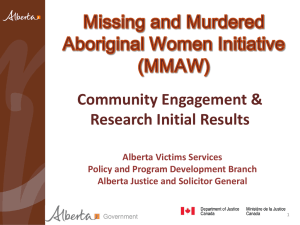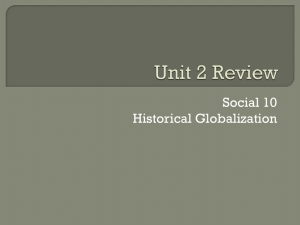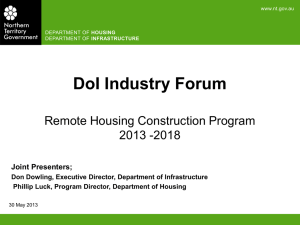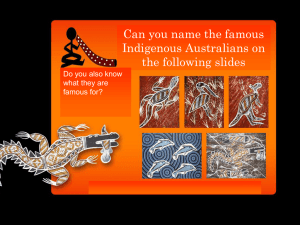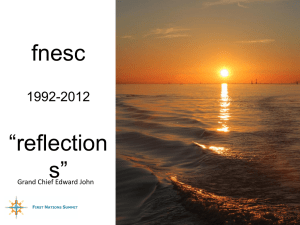What is Indigenous health and how do we assess it?
advertisement
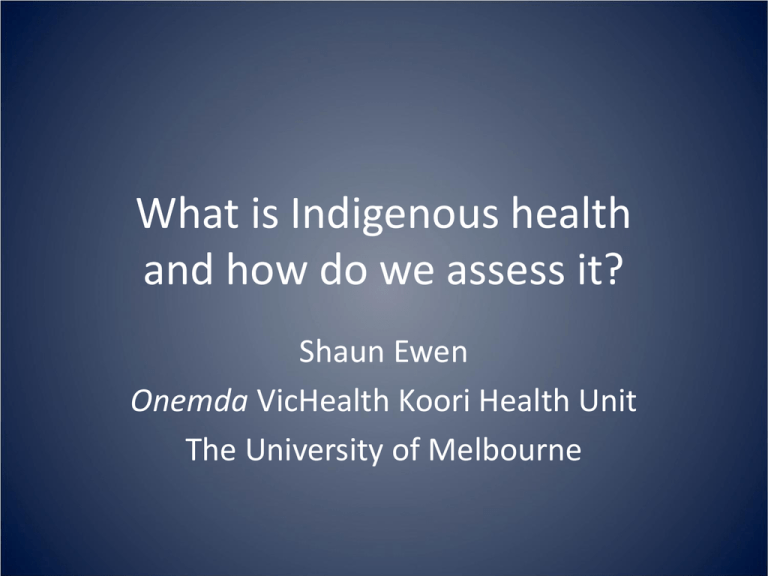
What is Indigenous health and how do we assess it? Shaun Ewen Onemda VicHealth Koori Health Unit The University of Melbourne • Consider Australian Medical Council (AMC) expectations in relation to curriculum • Consider AMC expectations in relation to assessment • Consider implications for Indigenous medical education AMC Standards Graduate Attributes – [Graduates] must be able to work effectively, competently and safely in a diversity of cultural environments, including a diversity of Indigenous health environments. • The AMC has endorsed the Indigenous Health Curriculum Framework AMC Assessment approach • The AMC encourages medical schools to develop assessment programs for their educational impact. A balance of valid, reliable and feasible methods should drive student learning to the course goals and outcomes. Course Goal • [Graduates] must be able to work effectively, competently and safely in a diversity of cultural environments, including a diversity of Indigenous health environments. Assessment • How can we assess students to ensure this attribute has been achieved upon graduation? • Who is best placed to assess this? Cultural Competence Cross et al, 1989 • a set of congruent behaviors, attitudes, and policies that come together in a system, agency, or amongst professionals and enables that system, agency, or those professionals to work effectively in cross-cultural situations (Cross et al, 1989) Ewen • Much of the rationale for, curriculum development and delivery of, and accreditation of cultural competence efforts has been based on training health professional students to provide effective services to the Other. Cultural Competence • ‘a philosophical framework and practical ideas for improving service delivery to children of color who are severely emotionally disturbed’ Cultural Safety Ramsden 2002 Ewen • The dream of Cultural Safety was about helping the people in nursing education, teachers and students, to become aware of their social conditioning and how it has affected them and therefore their practice. It was also critical to alert them to the health and disease issues for the indigenous people of the New Zealand islands. (Ramsden 2002) • requires the power and privilege of the medical professional to turn the gaze away from the Other, and critically self examine ‘their social conditioning and how it has affected them and therefore their practice’ regardless of what cultural context one comes from, and also requires self-examination of one’s own role within the professional context. Cultural Competence and Safety It is the perspective of ‘the Other’ which most markedly differentiates between the two terms. What about – Cultural Literacy? • Health Literacy = ‘the ability to understand health information and to use that information to make good decisions about your health and medical care’, Cultural Literacy • Ability to recognise the need to obtain, process, understand and be responsive to cultural factors within a biopsychosocial model of medicine. (Ewen – forthcoming) Cultural Literacy • Skills training for cultural literacy are already evident in many medical education curricula, but are usually called something else, such as communication skills, or part of Doctor, Patient and Society type subjects, and not always applied nor assessed in an Indigenous context. Diversity of Indigenous health environments Aboriginal Community Controlled Services Maori Health Services Doctor and Patient Hospital Emergency Departments Chronic Disease Care environments Community Health Centres Commonly Used Methods of Assessment Epstein R. N Engl J Med 2007;356:387-396 Assessment options Methods • Long Case • OSCE and Simulation • Patient Assessment • Portfolio Assessing cultural literacy • recognise the need to obtain, process, understand and be responsive to cultural factors within a biopsychosocial model of medicine – in this case, an Indigenous health context. The intellectual capital of a long history of medical education combined with a longer history of Indigenous knowledge and approaches in health and wellbeing, opens the way forward for innovative models of assessment in Indigenous health. Bradley Review [A]s the academy has contact with and addresses the forms of Indigenous knowledge, underlying assumptions in some discipline areas may themselves be challenged.
